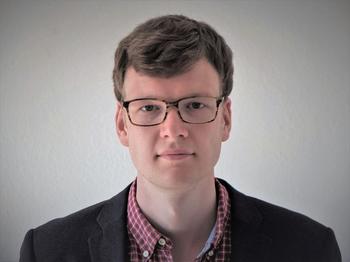Lucas Christopher Brang

Fellow in the project "Conceptions of World Order and Their Social Carrier Groups" (May - July 2023)
Short Biography
Lucas Brang is a doctoral candidate at the Chair of Chinese Legal Culture, University of Cologne, where he is currently completing his dissertation on the rise of the discipline of international law in early twentieth century China. From 2019 to 2022, he was a recipient of a Marie Curie global research fellowship of the European Union, as part of which he was affiliated with the Chinese University of Hong Kong. Lucas’ research interests include China’s constitutional development and visions of international order in historical and comparative perspective. In his work, he employs approaches from different disciplinary traditions such as legal theory, conceptual history, and the sociology of knowledge. His research has appeared in journals like Global Constitutionalism, Modern China, and the International Journal of Constitutional Law.
Project
Custodians of civilization: Overseas students, foreign advisors, and the rise of modern Asian statehood, 1882-1928Research on the late-Qing and early-republican period has long focused on how Chinese conceptions of world order underwent a fundamental transformation, culminating in the supersession of old imperial cosmologies by a secularized view of China as one sovereign nation among many. However, scholars have just begun to examine more closely how both changing Chinese world images and foreign perceptions of China were informed by, and channeled through, competing knowledge regimes, colonial infrastructures of information transmission, and identifiable social carrier groups. Focusing on overseas students and foreign government advisors, Lucas Brang’s research project investigates how different epistemic communities influenced rival European narratives of China’s role in the emerging international order, and how they facilitated, inhibited, and contested the constitutional transformation of Asian polities. Adopting insights from the sociology of knowledge, the project aims to identify structural patterns and institutional routes for the transmission of professional knowledge and legal expertise, such as missionary infrastructures and the emergence of a transnational labor market for advisors. Another goal is examine the extent to which this inbound flow of knowledge not only overlapped but also competed with the outbound movement of oversea Chinese students. As frontier intellectuals, Asian students in Europe and the United States acted as brokers of inter-civilizational encounter and inter-imperial rivalry. How did they challenge notions of Western civilizational superiority? To what extent did they fraternize with other Asians? How did their role as constitutional reformers, social engineers, and political revolutionaries contribute to the rise of modern Asian statehood? Apart from freely available sources such as scholarly writings, international treaties, and memoirs, the project will make use of archival documents at European universities and different Foreign Office archives. Geographically, the focus will lie on China, while also considering comparative perspectives from other semi-colonized societies like Japan, Siam, Iran, or the Ottoman empire.
